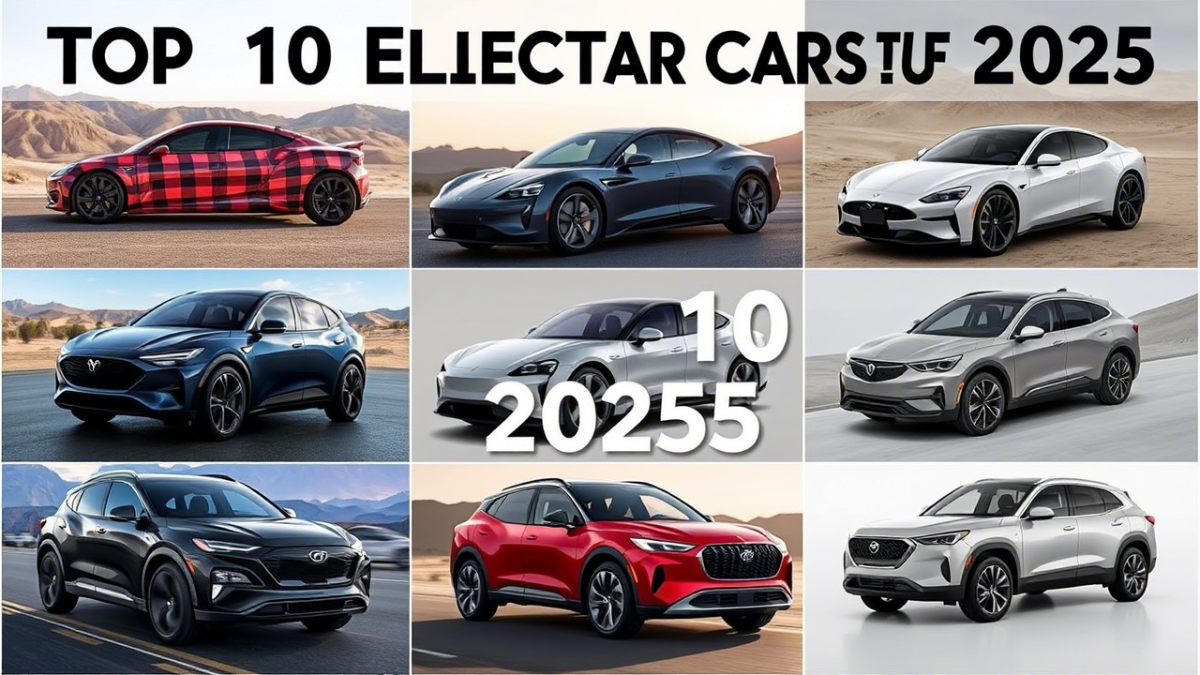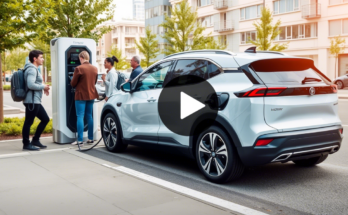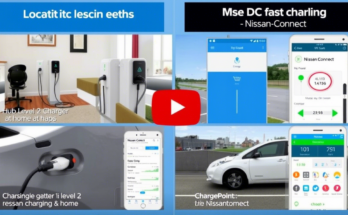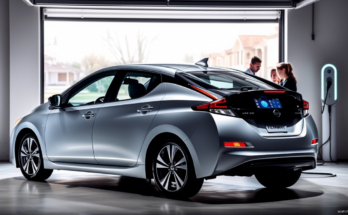Electric vehicles (EVs) have become the cornerstone of modern transportation, offering a cleaner and more efficient alternative to traditional gasoline-powered cars. With advancements in battery technology, charging infrastructure, and design innovation, the EV market is set to explode by 2025. Automakers are racing to deliver vehicles that meet environmental standards and satisfy consumer demands for performance, style, and affordability. This article dives into the top 10 electric cars expected to dominate the roads in 2025, highlighting their features, benefits, and what sets them apart.
Tesla Model S Plaid+
Tesla continues to lead the pack with its flagship sedan, the Model S Plaid+. This car redefines long-distance travel by boasting an unprecedented range of over 400 miles on a single charge. Equipped with three electric motors, it delivers jaw-dropping acceleration, reaching 0-60 mph in under two seconds. The interior blends luxury and cutting-edge tech, featuring a massive touchscreen interface and customizable ambient lighting. Tesla’s Full Self-Driving software enhances autonomous driving capabilities, making it one of the most advanced EVs on the market.
Lucid Air Sapphire
Lucid Motors has created a masterpiece with the Air Sapphire, a high-performance luxury sedan designed to rival even the most prestigious brands. Its quad-motor setup generates over 1,200 horsepower, propelling the car from 0 to 60 mph in just 1.89 seconds. A range exceeding 500 miles eliminates range anxiety while maintaining unparalleled comfort. Inside, passengers are treated to a minimalist yet opulent cabin with vegan leather upholstery and a panoramic glass roof. Advanced driver-assistance systems ensure safety without compromising speed or elegance.
Porsche Taycan Turbo S
Porsche has seamlessly blended sports car DNA with electric power in the Taycan Turbo S. This model stands out for its dynamic handling and precise steering, thanks to Porsche’s adaptive air suspension system. It can sprint from 0-60 mph in 2.6 seconds and offers thrilling performance paired with a sleek exterior design. The Taycan boasts a range of approximately 300 miles and supports ultra-fast charging, adding up to 60 miles of range in just five minutes. Its luxurious interior includes customizable displays and premium materials, ensuring every journey feels special.
Rivian R1T
Rivian’s R1T is revolutionizing the electric truck segment with its rugged build and impressive off-road capabilities. Designed for adventurers, this pickup truck can tow up to 11,000 pounds and effortlessly tackle challenging terrains. Its four-motor configuration provides independent torque control to each wheel, enhancing traction and stability. With a range of around 400 miles, the R1T ensures you won’t be stranded during outdoor escapades. The spacious cabin features sustainable materials, a large infotainment screen, and clever storage solutions like a gear tunnel for extra convenience.
Ford Mustang Mach-E GT
Ford’s iconic pony car has gone electric with the Mustang Mach-E GT, combining classic muscle-car aesthetics with modern EV efficiency. This SUV variant delivers exhilarating performance, achieving 0-60 mph in 3.5 seconds. A dual-motor all-wheel-drive system ensures optimal grip and handling, whether navigating city streets or winding highways. Offering a range of about 300 miles, the Mach-E GT caters to urban commuters and road-trippers. Its intuitive dashboard layout and voice-activated controls make daily use a breeze, while the sporty exterior turns heads wherever it goes.
Hyundai Ioniq 6
Hyundai’s Ioniq 6 represents the perfect balance between affordability and sophistication. Inspired by aerodynamic principles, its streamlined silhouette minimizes drag, contributing to a range of roughly 340 miles. Under the hood lies a highly efficient powertrain capable of delivering smooth acceleration and responsive handling. Inside, the minimalist design focuses on functionality, featuring eco-friendly materials and ample legroom. Drivers will appreciate the vehicle-to-load (V2L) feature, allowing them to power external devices using the car’s battery—a game-changer for campers and remote workers.
BMW iX M60
The BMW iX M60 combines luxury, performance, and sustainability in a striking package. As part of BMW’s electric lineup, this midsize SUV offers a range of approximately 350 miles and produces over 600 horsepower. Its intelligent xDrive system optimizes power distribution across all wheels, ensuring exceptional grip in various conditions. Inside, occupants enjoy a serene environment filled with natural light courtesy of the panoramic sunroof and immersive sound provided by a premium audio system. Gesture controls and augmented reality navigation further elevate the driving experience.
Audi Q6 e-tron
Audi enters the compact SUV segment with the Q6 e-tron, a stylish and versatile option for families and professionals. Built on the PPE platform shared with Porsche, it promises superior performance and efficiency. With a projected range of 310 miles, the Q6 e-tron is ideal for daily commutes and weekend getaways. Its dual-motor setup delivers robust acceleration, while adaptive dampers enhance ride quality. The interior showcases Audi’s signature craftsmanship, blending digital displays with tactile controls for an intuitive user experience.
Chevrolet Silverado EV
Chevrolet aims to electrify the full-size truck market with the Silverado EV, a bold step toward sustainable utility vehicles. Available in multiple configurations, including a work-focused Trail Boss edition, this truck offers a maximum range of 400 miles. It features a modular bed design with innovative storage options and a built-in power station for tools or appliances. Performance enthusiasts will appreciate the Wide Open Watts mode, which unleashes instant torque for rapid acceleration. The spacious cabin prioritizes comfort and connectivity, making it suitable for work and leisure.
Nissan Ariya Platinum+
Nissan rounds out the list with the Ariya Platinum+, a crossover blends futuristic design with practicality. Powered by a dual-motor e-4ORCE system, it delivers balanced performance and all-wheel-drive capability. With a range of approximately 300 miles, the Ariya is well-suited for everyday errands and longer trips. Thanks to the absence of a traditional transmission tunnel, its sleek exterior hides a surprisingly roomy interior. Highlights include a floating centre console, wireless charging pads, and ProPILOT Assist 2.0 for semi-autonomous driving.

FAQs About Electric Cars for 2025
What makes these electric cars stand out compared to older models?
These 2025 models benefit from significant advancements in battery technology, enabling longer ranges and faster charging times. Additionally, they incorporate state-of-the-art driver-assistance systems and luxurious interiors, setting new benchmarks for comfort and convenience.
Are electric cars affordable for the average consumer?
While some high-end models remain expensive, manufacturers like Hyundai and Nissan produce budget-friendly options without compromising essential features. Government incentives and tax credits further reduce costs, making EV ownership increasingly accessible.
How reliable are electric cars in extreme weather conditions?
Modern EVs are engineered to perform reliably in diverse climates. Enhanced thermal management systems regulate battery temperature, ensuring consistent performance in hot summers and cold winters. However, drivers should still plan for a reduced range of freezing temperatures.
Can I install a home charging station for my electric car?
Yes, installing a Level 2 home charger is straightforward and recommended for convenient overnight charging. Many automakers partner with certified installers to simplify the process and offer financing options if needed.
Will there be enough public charging stations by 2025?
The global push for EV adoption has spurred the rapid expansion of charging networks. By 2025, major cities and highways will have widespread coverage, alleviating accessibility concerns. Fast chargers will also become more prevalent, significantly reducing wait times.
Do electric cars require less maintenance than gas-powered cars?
Absolutely. EVs have fewer moving parts, eliminating the need for oil changes, transmission repairs, and other routine services associated with internal combustion engines. Regenerative braking systems minimize brake wear, resulting in lower overall maintenance costs.



